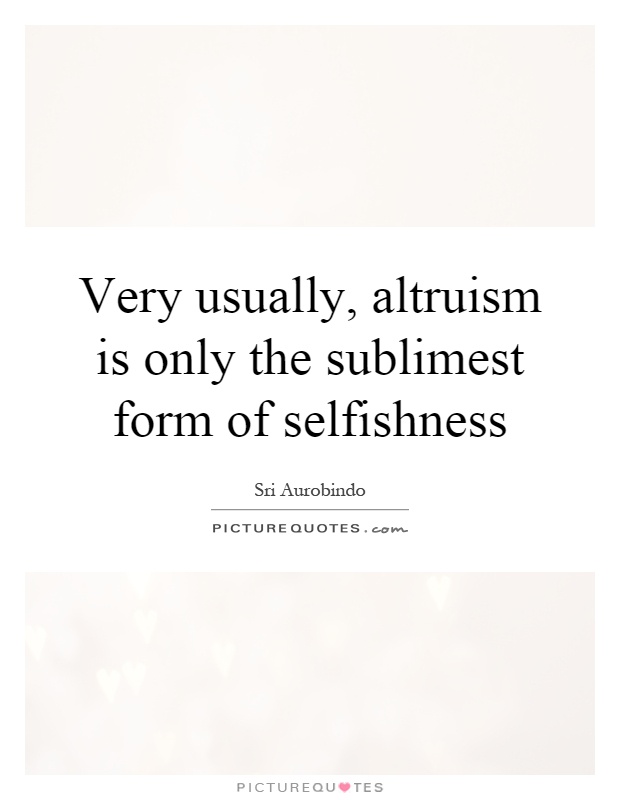Very usually, altruism is only the sublimest form of selfishness

Very usually, altruism is only the sublimest form of selfishness
Sri Aurobindo, a renowned Indian philosopher, yogi, and spiritual leader, had a unique perspective on altruism and selfishness. He believed that true altruism is not separate from selfishness but rather the highest form of selfishness. In his teachings, Sri Aurobindo emphasized the interconnectedness of all beings and the importance of selflessness in achieving spiritual growth and enlightenment.According to Sri Aurobindo, true altruism is rooted in the understanding that we are all interconnected and that by helping others, we are ultimately helping ourselves. He believed that the ego, or the sense of individual self, is an illusion that separates us from the divine and from each other. By transcending the ego and acting selflessly, we can tap into a higher consciousness and experience a deeper connection with the universe.
In this context, Sri Aurobindo's statement that "altruism is only the sublimest form of selfishness" takes on a profound meaning. He believed that true altruism is not motivated by a desire for personal gain or recognition but by a genuine desire to alleviate the suffering of others and to contribute to the greater good. In this sense, altruism is a form of selflessness that transcends the ego and allows us to connect with the divine within ourselves and in others.
Sri Aurobindo's teachings on altruism and selfishness challenge conventional notions of morality and ethics. He believed that true selflessness is not about sacrificing one's own needs for the sake of others but about recognizing the interconnectedness of all beings and acting in harmony with the divine will. By embracing this perspective, we can cultivate a deeper sense of compassion, empathy, and unity with all living beings.












 Friendship Quotes
Friendship Quotes Love Quotes
Love Quotes Life Quotes
Life Quotes Funny Quotes
Funny Quotes Motivational Quotes
Motivational Quotes Inspirational Quotes
Inspirational Quotes